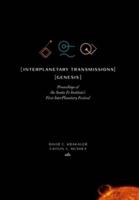Publisher's Synopsis
This report presents the results of the first year of a research program conducted for NASA-LeRC by the University of Texas at San Antonio. The research included development of methodology that provides a probabilistic treatment of lifetime prediction of structural components of aerospace propulsion systems subjected to fatigue. Material strength degradation models, based on primitive variables, include both a fatigue strength reduction model and a fatigue crack growth model. Linear elastic fracture mechanics is utilized in the latter model. Probabilistic analysis is based on simulation, and both maximum entropy and maximum penalized likelihood methods are used for the generation of probability density functions. The resulting constitutive relationships are included in several computer programs, RANDOM2, RANDOM3, and RANDOM4. These programs determine the random lifetime of an engine component, in mechanical load cycles, to reach a critical fatigue strength or crack size. The material considered was a cast nickel base superalloy, one typical of those used in the Space Shuttle Main Engine. Royce, Lola Unspecified Center DEGRADATION; ENGINE PARTS; FATIGUE LIFE; LIFE (DURABILITY); PROBABILITY THEORY; PROPULSION SYSTEM CONFIGURATIONS; COMPUTER PROGRAMS; CRACK PROPAGATION; CYCLIC LOADS; FRACTURE MECHANICS; HEAT RESISTANT ALLOYS; NICKEL ALLOYS; PROBABILITY DENSITY FUNCTIONS; SIMULATION; SPACE SHUTTLE MAIN ENGINE...












